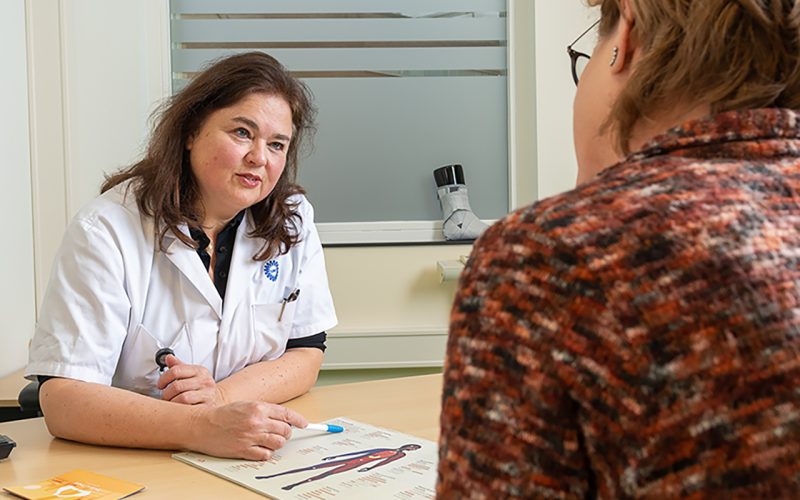What helps people with ALS, PSMA, or PLS cope with the profound consequences of their illness? A nationwide study involving patients, their loved ones, and healthcare professionals shows that emotional support is essential, but the available services do not always meet their needs, suggesting there is room for improvement.
What emotional challenges do you face when your health steadily deteriorates? How are you and your loved ones supported by ALS treatment teams in this regard? And how would you like that support to look? These and other questions were central to a large-scale study led by researcher Marion Sommers-Spijkerman from UMC Utrecht, conducted under the ALS Center of the Netherlands in collaboration with various ALS teams and patients and their families across the Netherlands.
A total of 232 patients, 116 family members, and 204 healthcare professionals completed a survey about their experiences with emotional support within ALS care. The results clearly indicate that most patients and family members receive support, often in the form of conversations, but other forms, such as (online) information, self-help, or peer support, are offered much less frequently.
It also appears that topics such as the meaning of life, sexuality, and how to deal with reactions from others are rarely addressed in the information and guidance provided by ALS treatment teams. These subjects, however, are essential for quality of life. “The results also show that many patients and family members are unsure about the ways in which they would like to be supported,” says Marion. “Additionally, some topics remain unspoken because healthcare professionals have a lot to discuss in limited time, they don’t know how to broach sensitive subjects, or they notice a reluctance from the patient.” Healthcare professionals indicate in the survey that they would like training and educational materials to open up a dialogue on these topics.
A notable finding is that one-quarter of the family members feel a barrier when asking for help for themselves from the ALS team. “In conversations that initially focus on my partner, it feels inappropriate to ask for attention for myself,” one family member responded in the survey. This is despite the fact that emotional support is crucial for family members to prevent burnout.
Another interesting point is that emotional support is often seen by patients and family members as the responsibility of psychologists or social workers. However, ALS teams view it as a team responsibility: rehabilitation doctors, occupational therapists, and nurses all play an important role. “Especially since the emotional impact of certain limitations or adjustments often arises spontaneously during an appointment,” explains Marion. That’s why she specifically directed the survey to all disciplines within the team.
Marion and her team will now use the results of the study to work with ALS treatment teams on concrete improvements in care. This includes educational materials for healthcare professionals, digital information for patients and family members, and more focus on the topics that are currently underrepresented. Marion: “The goal is to provide care that truly meets people’s needs, tailored to individuals and moments. At the right time, in the right way.”
At UMC Utrecht, we work on providing care that suits our patients. We do this together with the patient, as a team. Before, during, and after treatment. Together, we make the difference.
